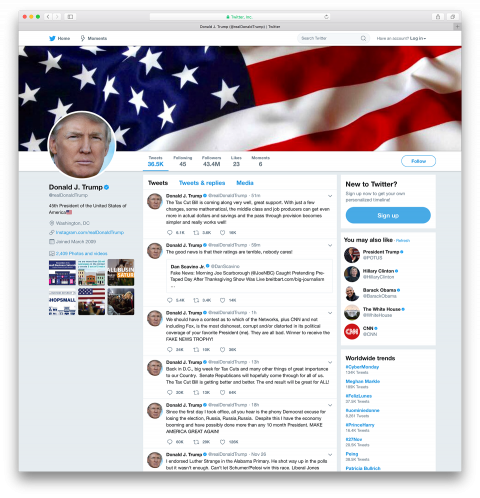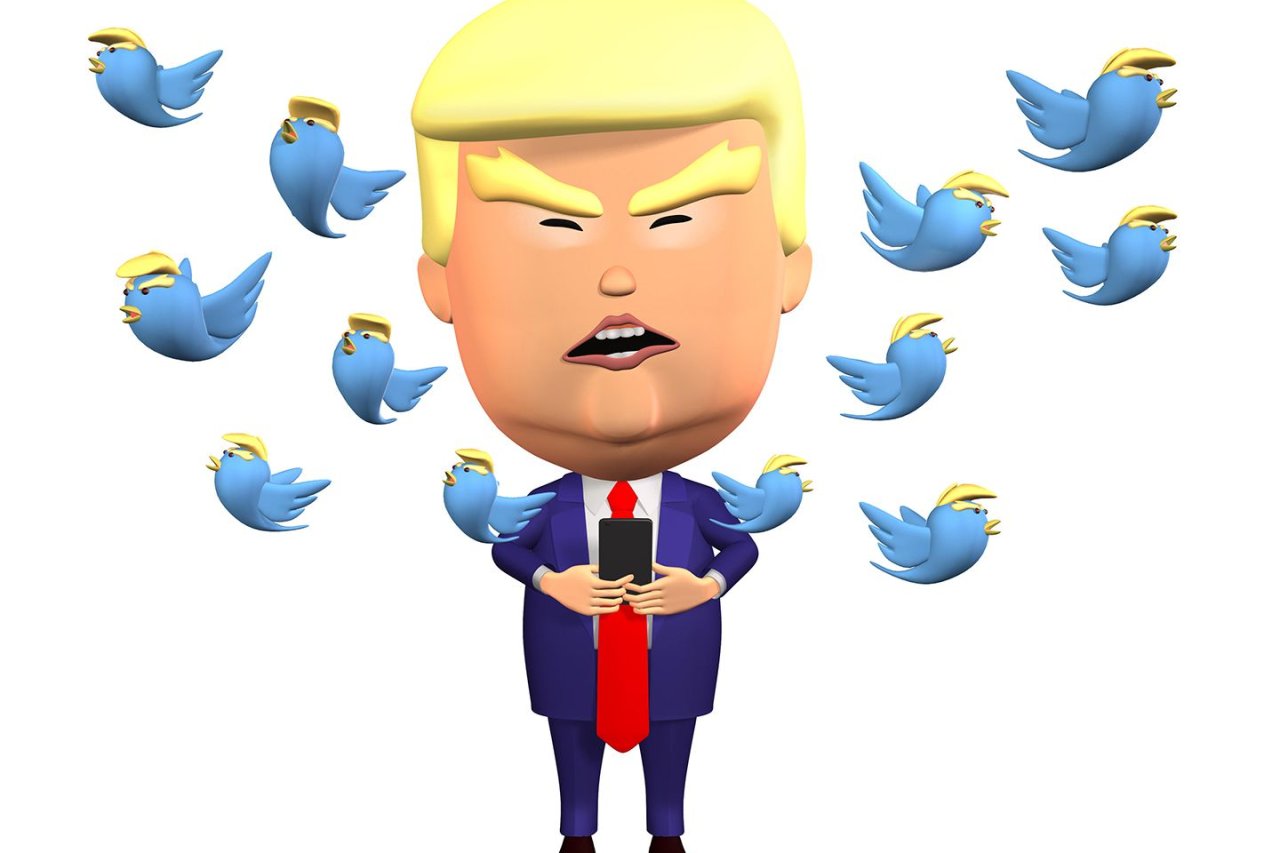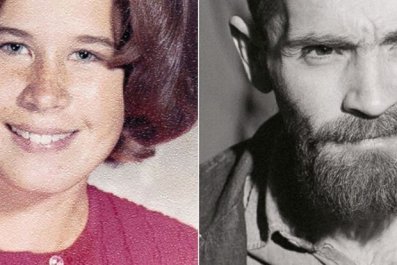If AOL Instant Messenger, aka AIM, can perish, then the same could happen to Twitter. And if Twitter dies, well, there goes the Trump Presidential Library.
AIM once ruled digital communication. It had 100 million users in 2001, when the entire internet population was 140 million. That means AIM was used by 71 percent of the people online in 2001. Today, Facebook is used by 2 billion of the 3.2 billion people online, or 62.5 percent. Clearly, Facebook is a piker by comparison.
That's why AIM's demise is so interesting. It is going nighty-night on December 15—a kind of tech euthanasia by its new owner, Verizon, for a product that barely shows a pulse now. Somebody should play "Taps" in those cheesy Pac-Man-era computer music tones.
It's easy to feel that today's colossal communications platforms, like Facebook, Google and Twitter, or rising stars like Slack, will be with us until the end of time. But the passing of AIM forces us to confront the mortality of these systems. Technology changes. Our habits shift. We migrate to something new, and an old platform starts to seem sad, like a once-popular nightclub that's empty but for a few ragged faithful. It can—and someday will—happen to all of the current social media superstars.
We've seen digital platforms fade before. Friendster got remade into a Malaysia-based social gaming platform that did well in Asia but now is "taking a break," as its website says. But nothing as significant as AIM has been completely shut off, and that raises questions about communications in the digital age and the legacy it will leave—especially now that we have a tweeter in chief.
Conversation or Correspondence?
When we use a digital platform, what should just disappear into the ether and what should be preserved for history—or maybe for law enforcement? The answers might lie in the subtle difference between conversation and correspondence. For much of humanity, conversation has been ephemeral. Talk travels through the air and gets preserved only in listeners' memory. We're OK with that. It's how we've communicated for thousands of years.
But is it conversation if you're typing in a chat box, bantering back and forth? Evan Spiegel, co-founder of Snap, thinks so. From the start, he positioned Snapchat as ephemeral conversation. Whatever gets sent between you and your friends disappears, just like if you were hanging together in a bar. It's not meant to be stored or mined for advertising data. "We care about not being creepy," Spiegel once said in an interview, which is actually a bit odd coming from the creator of an app that originally got used for sending naked photos. Still, Snap is on the side of keeping conversations private. AIM, too, acted as if its chats were conversation. A user could save an ongoing chat on his or her PC—in those days, we chatted only on computers, not cellphones—but AOL didn't keep the data on its servers. When AIM turns off, there will be nothing left. We may never know whether George W. Bush in 2001 was gossiping on AIM with Dick Cheney.
Correspondence comes with a different sensibility. Correspondence used to mean letters. It is more deliberate, purposeful. There is some expectation it might be saved, whether in a dresser drawer, public library or data center. Facebook treats everything we type—in Messenger, comments, whatever—as correspondence. The text gets stored and analyzed. Facebook's artificial intelligence uses it to learn about you and help advertisers target you. This is new to society, and we're increasingly questioning whether we like it.
Conversation versus correspondence gets critical when we're talking about the U.S. president. When a president corresponds, it's treated much differently than when he has a conversation. The Presidential Records Act of 1978—passed when Congress worried that former President Richard Nixon might destroy incriminating evidence—sets strict rules for saving everything a president writes or creates on the job.
If our next president actually knows how to use apps besides Twitter, what will be considered ephemeral conversation and what will be correspondence that must be preserved? Let's say a president is shooting snaps to the secretary of state that show Britain's Theresa May as a bunny. Normally, they would disappear. But do we want that in the archives? Policymakers will need to figure that out.]

National Security Concerns
The U.S. government might also consider whether the big U.S.-based digital platforms are vital to national security. AIM by now has withered to only about 1 million users. Nobody's going to miss it any more than we miss coffee percolators or rotary-dial telephones. But think of the mayhem if the Russians or Chinese were to buy a major American social network. Maybe a Russian state-sponsored oligarch will snatch Facebook after its market value plunges because we've finally decided the company is ruining the country. Imagine the dirt on public figures the Russians could find in the data. It would make a pee-pee tape seem quaint. But more immediately, it's in the realm of possibility that the Chinese could acquire Twitter and bring the entire Trump administration to its knees by threatening to turn off the service. It's not as if Twitter is too pricey for a takeover. It's worth $15.7 billion. Broadcom's bid for chip-maker Qualcomm recently hit $105 billion.
Given all the ways digital history could get wiped out, we're already seeing arguments for preserving it. Says Shontavia Johnson, a professor of intellectual property law at Drake University, "If a tweet is the catalyst for a lost ally, new policy or other reaction, American history deserves to have a record of it." In March of this year, David Ferriero, head of the National Archives, reminded the White House it has to save even tweets Trump deletes or edits—like when Trump tweeted minutes before his inauguration that he is "honered to serve you, the great American People," and later altered it to "honored." Or when he demands investigations of his political opponents as if he's a strongman dictator. After tweeting this in March, Trump deleted it: "I hear by demand a second investigation, after Schumer, of Pelosi for her close ties to Russia, and lying about it."
It's a relief to think that no matter what becomes of our social networks, generations to come might be able to see a great mind at work.















